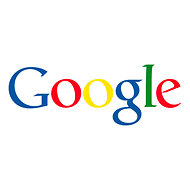The contest, the 2012 USA Today Print Advertising Competition, was announced on Oct. 1, in conjunction with a redesign of USA Today timed to coincide with the newspaper’s 30th anniversary. The winner of the contest is the Google Creative Lab unit of Google, which is known for, among other online innovations, Google News, a free aggregator of the content of newspapers like USA Today.
Executives of USA Today, which is owned by Gannett, are to discuss the results of the contest on Wednesday at a breakfast at the newspaper’s New York office.
The Google Creative Lab entry was one of three finalists in the contest, which attracted about 100 entries that were judged by six advertising and media executives. The winning ad promoted the Google Plus Hangout service as an alternative to meetings in person.
One runner-up was the Advertising Council in New York, for an ad from a campaign for Save the Children, which carried the theme “Every beat matters.” The campaign was created by BBDO New York, part of the BBDO Worldwide division of the Omnicom Group.
The other runner-up was Team Detroit, a WPP agency, for an ad for a new toy, Nanoblock, sold by the Ohio Art Company.
There are those who will applaud the outcome of the contest, which asked the entrants to submit print ads — existing or new — that they deemed their most creative. A company like Google, according to such people, ought to hear an “attaboy” or two when creating ads in print rather than online.
“I love the idea of using print to talk about a technology,” one judge, Tiffany Rolfe, said of the winning ad.
“To me, print is still an interesting medium,” said Ms. Rolfe, who is a partner and chief content officer at Co Collective in New York, an agency that works for USA Today. “We have to work harder now to use it effectively.”
However, others who hear how the contest turned out may wonder whether the winner will react — to paraphrase the old joke about dubious victories — by asking whether the second prize was $2 million worth of full-page newspaper ad space.
Larry Kramer, president and publisher at USA Today in McLean, Va., said he could see how people may consider it “hysterical” that Google has won a competition for creative print advertising.
But when Mr. Kramer saw the ad during the preliminary stages of the contest, he recalled, “I said, ‘That’s a winner,’ ” because the creators of the ad “understood the palette” that print offers to marketers and took advantage of the medium’s strengths.
As for the japes about Google as a destroyer of print media rather than a supporter, Mr. Kramer said, “Everything we say about Google, the nice thing is that they have to search something.”
The root of the contest was “a conversation I had with Michael Wolff when we were hiring him,” Mr. Kramer said, referring to the author and editor who became the media columnist for USA Today and also served as a judge of the competition, about how many “great, creative” print ads appeared during the Summer Olympics.
“I was upset that agencies weren’t doing enough print creative and putting their best and brightest people on digital platforms,” Mr. Kramer said. “I’m worried the skill set is atrophying and wanted to do something to remind the world that print creative matters.”
Another judge, Chuck Porter — chairman at Crispin Porter Bogusky in Miami and chief strategist at MDC Partners, which owns Crispin Porter — said: “It’s not that kids have totally given up on print. That’s kind of baloney. But I think people don’t pay as much attention to the craft of print as they used to.”
The winning ad, which ran in October, was simple. It reprinted a paragraph from a newspaper article reporting that the Dalai Lama had “scrapped plans” to attend the 80th birthday celebration of a fellow Nobel laureate, Desmond M. Tutu of South Africa, because his visa request was not granted.
The ad updated the article by crossing out words like “scrapped plans” and replacing them with “joined” and “via Hangout.”
Robert Wong, chief creative officer at the Google Creative Lab in New York, said he was “happily surprised to hear we’re a finalist.” (He and the other two finalists were interviewed last week, before they learned the winner.)
“Every medium has its strengths,” Mr. Wong said, and for print, they include immediacy, in that “a newspaper is good for news.” He added: “A full-page ad in a newspaper says the ad is important.”
The decision to enter the contest came after positive responses to the ad, which ran in The New York Times. “We were proud of the ad and said let’s send it in,” Mr. Wong said. “A million dollars is nothing to laugh at.”
Mr. Wong said the company would donate the $1 million worth of ad space to “people who need it,” adding, “Right now, the Sandy relief effort could probably use some help.”
The prize, Mr. Kramer of USA Today said, equals “roughly half a dozen pages” in the paper. USA Today may sponsor a similar contest this year, he added.
Article source: http://www.nytimes.com/2013/01/16/business/media/google-seen-as-prints-nemesis-is-honored-by-usa-today-for-creativity.html?partner=rss&emc=rss
